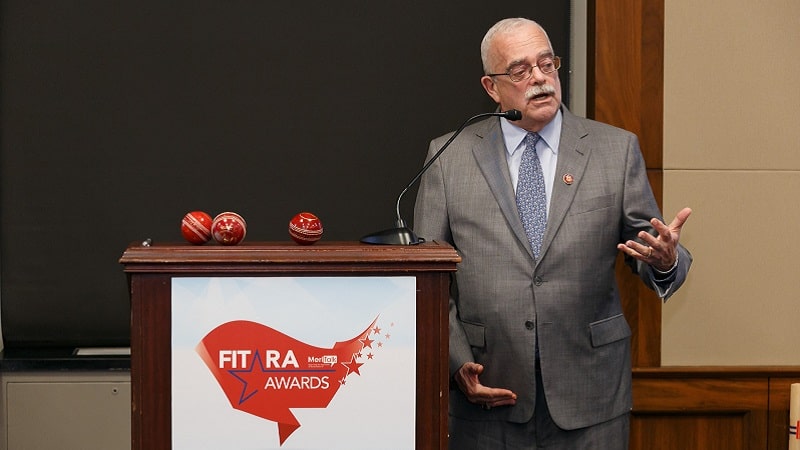
Rep. Gerry Connolly, D-Va., chairman of the House Government Operations Subcommittee, and Federal CIO Suzette Kent said Thursday night at MeriTalk’s FITARA Awards ceremony that they are looking forward to considering ways to further evolve the FITARA scorecard that tracks Federal agency IT performance and accountability.
The congressman – a longtime Hill leader on government technology issues – is the honorary chair of the FITARA Forward Initiative that is exploring whether the scorecard can examine other vectors such as citizen experience, digital service delivery, and cybersecurity performance. The initiative will also consider the potential to tie agencies’ FITARA progress to budget appropriations and IT funding mechanisms in the MGT Act and the Technology Modernization Fund.
The initiative’s work is beginning with a survey of agency mission owners and the public to understand Federal IT management and consumer priorities and aspirations. It will hold an initial stakeholder meeting in March, followed by two working group meetings, and then will deliver recommendations to Rep. Connolly before release of the FITARA 10.0 scorecard, expected in June.
The scorecard, Rep. Connolly said, is “a work in progress, so we’re evolving. We don’t want rigid standards that don’t make sense. On the other hand, we want to make sure we continue to make progress. But we also want to make sure that we have some continuity in the scorecard so we can measure progress over time.”
He said the House Oversight and Reform Committee will use the tenth version of the scorecard – expected in June – to “ramp up” focus on the scorecard’s aims. The upcoming scorecard will also mark the five-year anniversary of the FITARA legislation taking effect, “so we will kind of elevate that issue.”
The congressman sounded an upbeat tone about the success of the scorecard to date, and what it can accomplish in the future.
“When we first began doing the scorecard, I think the average grade was D, and the average grade today is C. We had no A’s, and we had a number of F’s. Today there are no F’s, and there are three or four A’s. We’re making a lot of progress on metrics that we really care about like data center consolidation, and we’re making progress on the hierarchy of CIO reporting.”
He said the effort to have agencies give CIOs direct reporting authority to top agency leadership is geared to “imbue that position with decision-making responsibility, accountability, transparency, and the freedom to make decisions, including some decisions that may go awry. But if everyone’s afraid to take a risk and nobody’s in charge, bad decisions, or no decisions get made. We’re trying to encourage that cultural change.”
“We’ve got to continue to make progress. There’s so much that can be done, there’s so much,” he said. In particular, he said that deployment of advanced technologies like artificial intelligence have the potential to yield better citizen service and greater Federal IT productivity.
“We can make the workplace a lot more attractive for the next generation, which is pretty demanding, in terms of expectations about technology. And we most important of all can better serve the American people,” he said.
Also speaking at the FITARA Awards ceremony, Federal CIO Suzette Kent said she was “excited about continuing the dialogue about what’s next” with the FITARA scorecard process.
“We’re all challenged with continuously looking for better ways to serve the citizen and to understand new technologies and principles on how we can leverage that,” she said. “There’s lots of dynamics in there, but we’re hopeful about an outcome that lets us tell the story about what’s been done in a way that matters.”
“A lot of the things that we’ve done [up to now] is why we have a solid foundation,” she said.
“I have the privilege of being the advocate … on behalf of all of the technology executives across the agencies. The story that we really want to tell is how we’re better serving you, and the things that we’re doing to improve service to citizens.”
“The scorecard is a great thing, and it’s a great thing to hold up and measure yourself by. But what we really want to represent is how well agencies are doing on modernizing and leveraging technology to serve mission, and to improve what we can deliver to our citizens, so that’s why I’m happy to celebrate” progress on FITARA scores.
